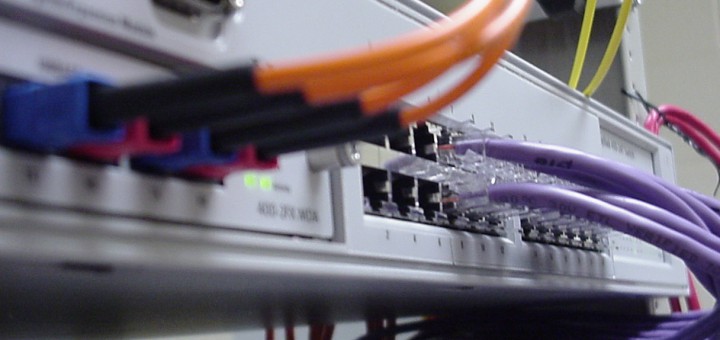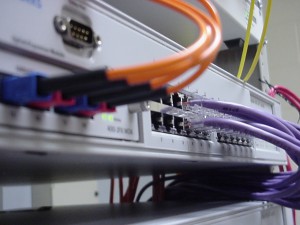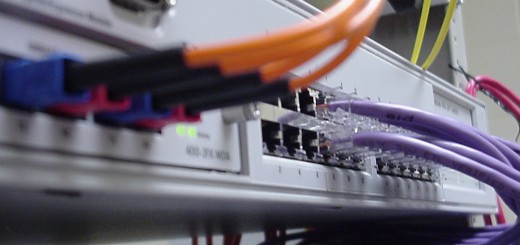Do You Need Synchronous Internet Speeds

The latest round of ads on the internet tout “matching” internet speeds. They intimate that internet speeds that aren’t equal in each direction, or SYNCHRONOUS, are slowing you down. They show people on an escalator where the up direction moves slower than the down direction.
First of all the concept of internet speed is a misnomer to begin with. Electrons travel at the same speed along copper wires and photons travel at the same speed along fiber optic cables regardless of how much you pay and how your connection “rated”. This is limited by laws, those of physics however and not the FCC. Probably the closest thing to speed you can measure is the time it takes to “ping” another internet address. All of this is affected by a variety of factors including the distance and the speed of light and resistance of the medium traveled. None of this has any impact on the “speed” the ISP touts. 
That “speed” is also referred to slightly more accurately as bandwidth or even more accurately as capacity. Think of it as a straw that you use to drink your big gulp. If you get a bigger (larger diameter) straw, you can suck down your sugary drink quicker. The fluid doesn’t enter your mouth at a different speed, you just get more in the same amount of time.
Think of your internet connection then as a pipe, or even more accurately as two pipes, and the diameter of those pipes is what we are going to evaluate. For almost anyone that streams anything, download times are very relevant… to a point. For household usage, depending on the amount of media you might be trying to stream at the highest peak of usage, this would be your biggest limiting factor on minimum download bandwidth.
For businesses this is a more complex scenario. For download speeds, you want to look at the size of files you might get emailed or your staff might retrieve. Are you using the cloud and if so how much data are your moving across your Wide Area Network (WAN) connection? Streaming could be a consideration, but probably not your top priority. In reality business download bandwidth is not something that generally needs to be as fast as residential.
So now the question of upload bandwidth. Does it need to “match” or be synchronous? Almost always the answer is “No”. For residential usage, the biggest reasons that you would want the speed to be fast is a) you are using Slingbox or some other media redirection so you can watch TV remotely,b) need to access files or remotely control your computers. While remote computer control applications like Remote Desktop or Log Me In work better with higher bandwidth, they are only sending screenshots. And how often do you need a 5 gig file from your home PC. The only times you would “notice” it from home is if you were to upload a large email attachment or transfer a very large file to someone. Most consumer email cannot receive the size file that would be at issue, Facebook, Twitter, and others limit the size of the files you can upload, and none of this has the slightest effect on downloading data, which is the primary thing residential consumers do on the internet.
Again business usage is more complicated. Do you host an application that others access from outside? For this your would want to identify any points where your application needs to send large amounts of data quickly to the client. This can be identified by flattened humps rather than peaks on a network traffic monitor, indicating that the data has to wait to be transferred.
If you transfer large files outside your local network, than this is another consideration. Finally, site to site Virtual Private Networks (VPNs) or extending your enterprise into the cloud are other prime considerations for high upstream bandwidth. These are not very common scenarios, yet, and even when present usually do not demand extraordinarily large bandwidth allocations. If you have these requirements, then you most likely knew everything in this article and probably could even improve on it.
In conclusion, the likelihood that you need synchronous or “matching” bandwidth speeds is directly proportional to your knowledge of your WAN requirements and absent the knowledge that you need higher upload bandwidth, you most likely would have no use for it. In other words… If you don’t have a reason to need it, you don’t need it, and certainly shouldn’t pay more for it!



Hello! I know this is kinda off topic but I was wondering which blog platform are
you using for this site? I’m getting sick and tired of WordPress because I’ve had issues with hackers and I’m looking at options for
another platform. I would be fantastic if you
could point me in the direction of a good platform.
I am using word press, but considering moving to Rainmaker.
Hey! I just wanted to ask if you ever have any trouble with
hackers? My last blog (wordpress) was hacked and I ended up losing a
few months of hard work due to no back up. Do you have any solutions to protect against hackers?
Strong passwords.